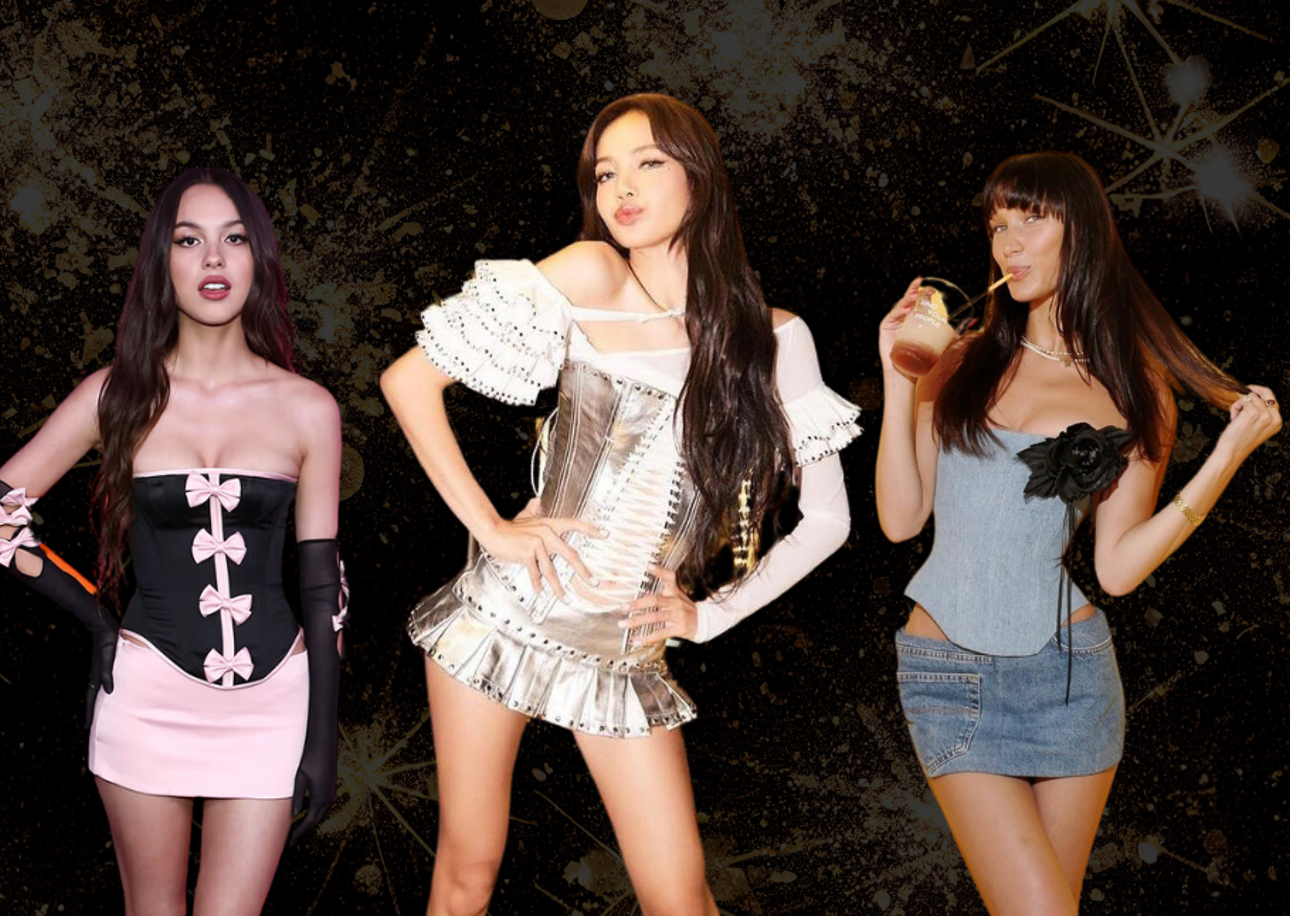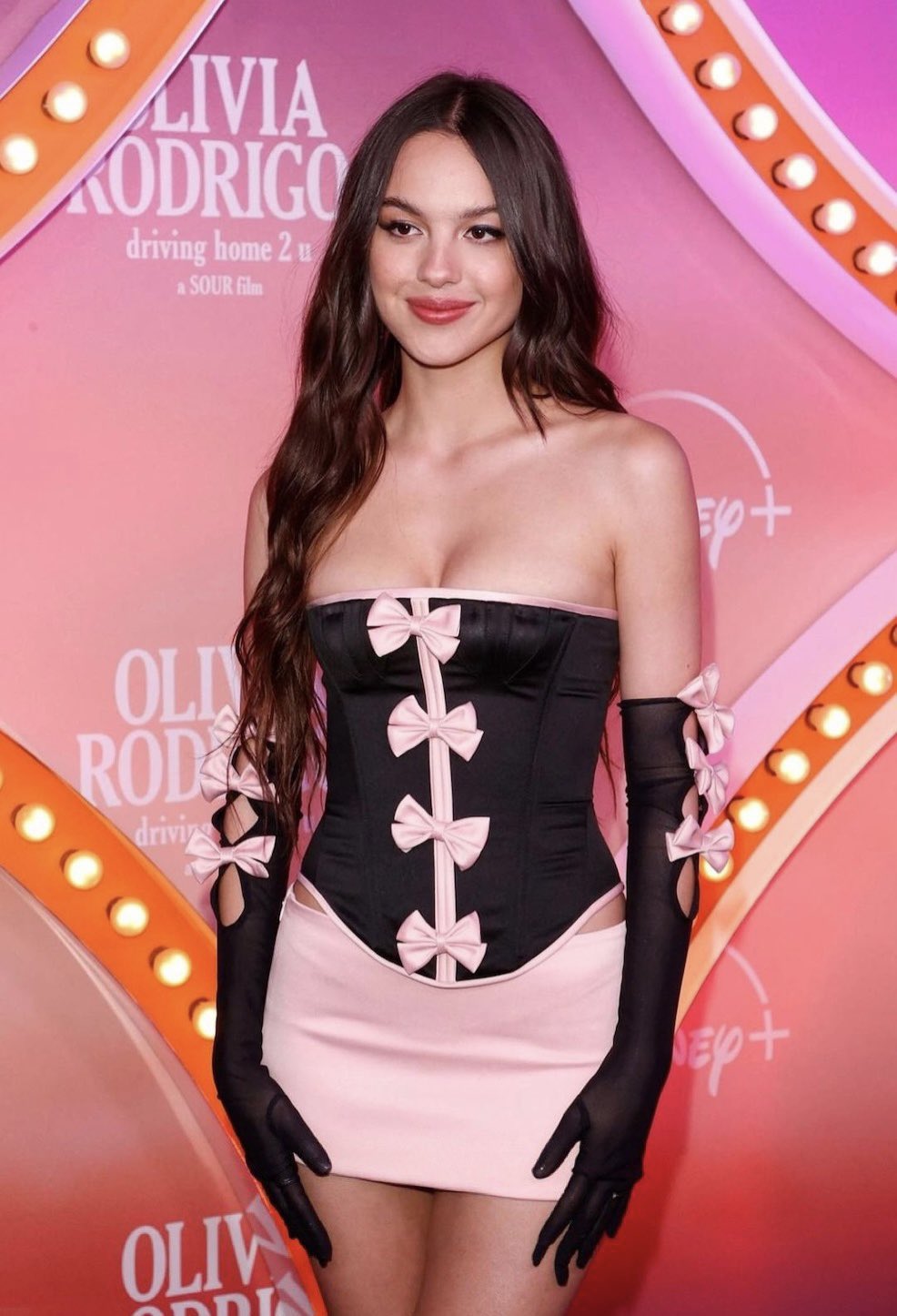Black Grills: Homage to the Asian Tradition of Blackened Teeth, Once a Mark of High Status
Courtesy of @sailorr Sailorr and Molly Santana’s black grills fuse hip-hop swagger ...

Is it too late to talk about Vietnamese fashion? Not at all. While traditional garments have their charm, the contemporary styles from Vietnam in 2023 are making waves in the world of fashion. Thai influencers are ditching their old wardrobes in favour of Vietnamese couture, flaunting their ensembles on Instagram. What’s more, international icons such as Blackpink, Bella Hadid, Olivia Rodrigo, Rihanna, and Beyoncé have all embraced Vietnamese fashion, proudly wearing labels like “Fancì Club” and “CONG TRI” both on and off the stage.
Bella Hadid wearing Fancì Club Photo: Courtesy of Fanci.Club IG
Vietnamese fashion is known for its combining sexy and elegant styles featuring bows, lace, flowers, and soft pastel colours. These designs are very attractive and make wearers feel like a K-pop girl group member.
In recent years, Vietnam’s fashion industry has shifted towards sustainability and ethical practices, joining the global trend. Fashion designers, manufacturers, and consumers in the country are increasingly adopting eco-friendly choices to reduce environmental impact. Despite its rich textile history and cultural diversity, the industry has faced criticism for water usage, chemical pollution, and poor working conditions. In response, many in Vietnam are embracing sustainability to address these challenges.
BOWKYLION wearing L Seoul Photo: Courtesy of bowkylion IG
Vietnamese fashion’s unique designs and precise cuts have firmly established it as a trendsetter in 2023. Influencers and fashionistas worldwide, keen not to be left behind, are now turning their attention to Vietnamese brands. The nation’s reputation as a historical manufacturing hub for globally recognized brands, combined with the craftsmanship of the Vietnamese people, adds to the appeal of these fashionable items, making them even more sought after.
The ongoing “Fast Fashion” trend remains popular among fashion enthusiasts due to its affordability, colourful colours, and trendy designs. Today’s fashion is heavily influenced by “Balletcore,” a modern Y2K trend that takes inspiration from ballerinas and incorporates ribbon and bow elements into clothing.

Olivia Rodrigo wearing Fancì Club Photo: Courtesy of @mitchomezzomo X
Vietnamese fashion brands have become powerhouses in the fast fashion arena. This success owes much to prominent artists who have showcased these garments through social media channels. The fast fashion trend has boosted Vietnam’s export revenue and support from the government, positioning the country as a player in the global fashion industry.
Despite the resounding success of Vietnamese fast fashion, concerns have emerged regarding its sustainability. The “easy to buy, fast to sell” nature of these garments has led to a cycle where consumers wear them only a few times before moving on to the next trend. This raises questions about the environmental impact and the potential for increased waste in the fashion industry.
In the pursuit of competitive prices, brands and manufacturers often resort to the use of cheap and unsustainable materials, while minimising labour and environmental standards. This relentless drive for low production costs compromises the quality of products and contributes to subpar working conditions and harmful environmental practices.
The industry’s undeniable success calls for a critical examination of its sustainability, urging stakeholders to consider the lifecycle of trendy pieces. It is incumbent upon both consumers and producers to collaborate in fostering a more sustainable approach, ensuring that the fashion craze does not come at the cost of the environment.
The Way Forward
Addressing the sustainability challenges in Vietnamese fashion requires a concerted effort from all stakeholders, including fashion brands, manufacturers, consumers, and government bodies. Some potential solutions include:
Initiatives to raise awareness among consumers about the environmental and ethical implications of their fashion choices can help drive demand for sustainable fashion.
Collaboration between fashion brands, manufacturers, and NGOs can help develop and promote sustainable practices within the industry.
Strengthening and enforcing regulations related to environmental and labour standards in the fashion industry is crucial.
Support for the development and production of sustainable materials within Vietnam can help make eco-friendly options more accessible.
Courtesy of @sailorr Sailorr and Molly Santana’s black grills fuse hip-hop swagger ...
Wandering around the globe, try out the signature tastes of cultures across ...
These top 5 barber shops in Bangkok are where gentlemen can elevate ...
Pets, as cherished members of our families, deserve rights and protections that ...
While traditional TV shows are serving us endless boy-meets-girl tales. Thailand has ...
In Bangkok’s food scene, nothing stays the same for long. Discover the ...
Wee use cookies to deliver your best experience on our website. By using our website, you consent to our cookies in accordance with our cookies policy and privacy policy